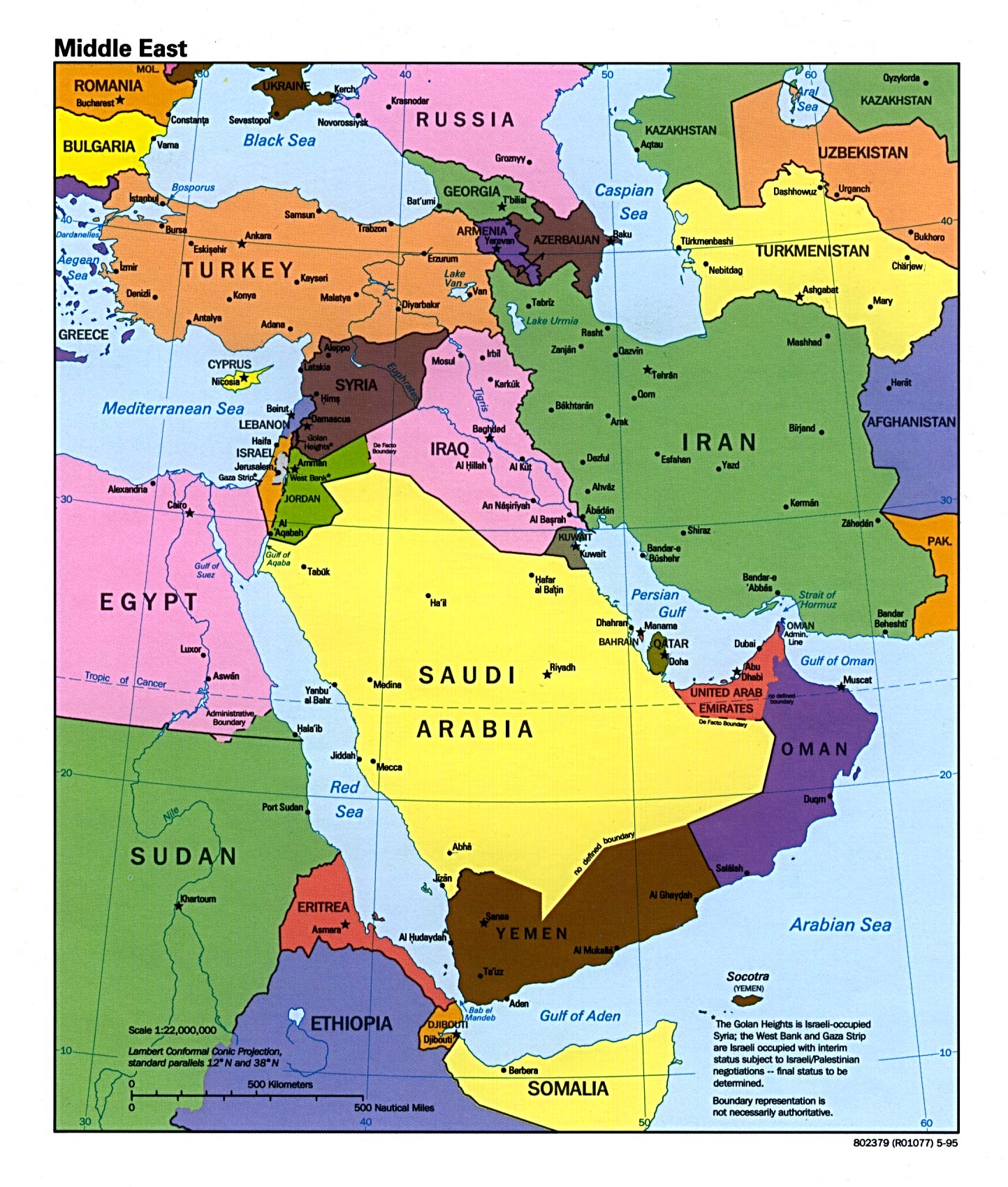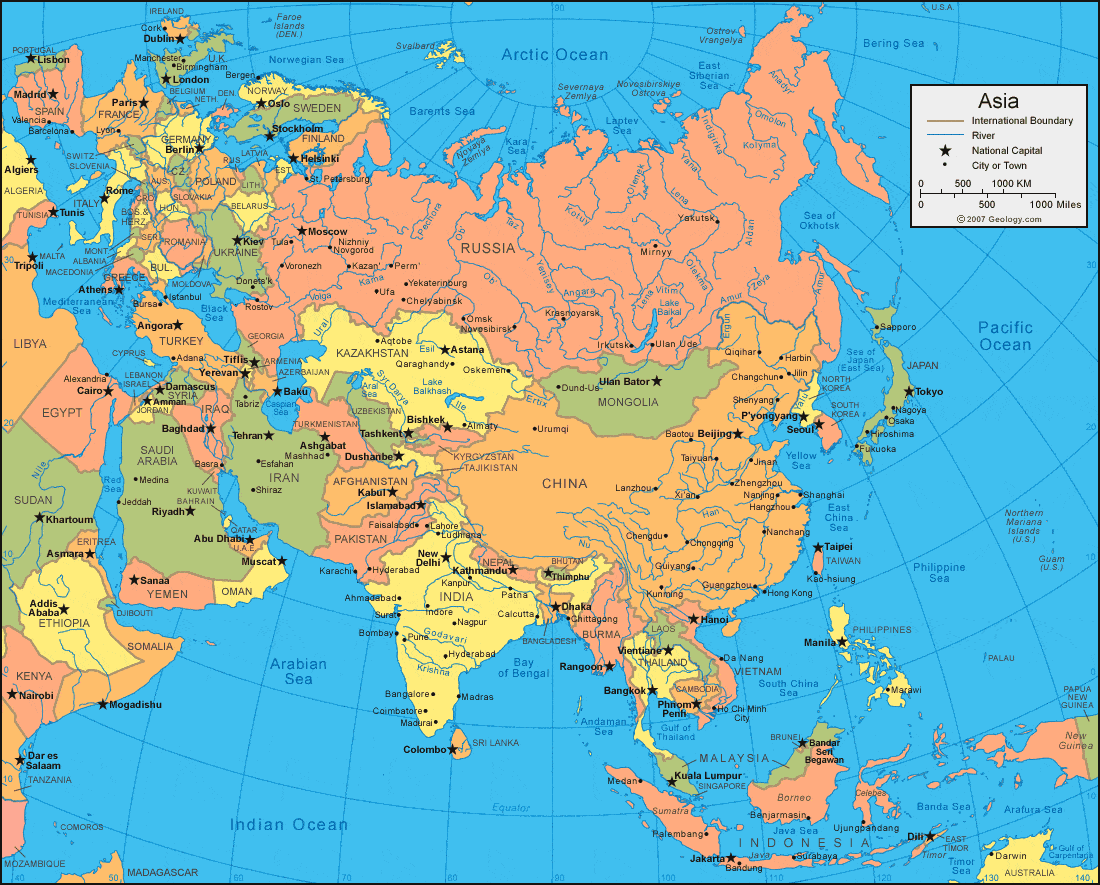Below are links to some items about Al Aqeada and U.S. involvement in Syria. I don't think either of us are going to change our minds but it has been interesting reading your opinions. Most people I've had these discussions with quickly start insulting me instead of explaining their point of view. One last thing because you seem fairly knowledgeable about the topic is the Wahabi's. My understanding is that much of the support for radicalization can be traced back to them and they are centered in Saudia Arabia. Do you dispute that? What is there standing in Saudia Arabia? They don't make the press that often so they are harder to learn about. Any links to good articles would be great
The Guardian
Turkey Emails
CFR
I didn't dispute that al-Qaeda had played a crucial role in buttressing the FSA, but my point was they are a minority of the combatants. Their primary contribution has been in funneling fighters from Iraq who are experienced with IED attacks and other guerrilla tactics. Their impact has been far out-sized to their numerical presence on the ground. The media also often conflates Islamist militias with al-Qaeda links. But its true that their presence will grow as the need for allies grows. That is why it is imperative that the US intervene to reduce their demand. They have become popular because like in Libya when they needed allies, al-Qaeda arrived, it was the same in Bosnia and Chechnya. What drives them from their sphere? The impact of outside activity. The dearth of US involvement and support of groups it wants to see rise (such as the nucleus of the FSA) has led to al-Qaeda filling the vacuum. So my point was that the US is not funding al-Qaeda, it is that al-Qaeda is rising because of a lack of support for the FSA.
As for Saudi Arabia the issue is that people conflate the Saudi government, with segments of Saudi society. The Saudi government historically did cultivate Islamism, this has its roots in the Cold War. I'll be brief but essentially the al-Saud (name for the House of Saud) found itself beleaguered by Arab socialist movements being spread from Egypt with the assistance of the Soviet Union. The fomentation of Arab nationalist (socialist) revolutions in Iraq, Syria, and almost in Jordan led to Saudi Arabia taking a sympathizing stance with the Muslim Brotherhood and solidifying its religious credentials as a counterbalance to the Arab nationalist narrative emanating from Cairo. The conflict eventually became exceedingly personal with elements of the Saudi royal family calling themselves the Free Princes fled to Cairo, eventually to be joined by the ousted King Saud who was toppled in a palace coup by Faisal. Nasser attempted to assassinate senior Saudi royals and foment a revolution, and the al-Saud responded in kind. The war became almost overt as Egyptian troops became involved in Yemen, and Saudi Arabia provided shelter and support to the anti-government rebels. This eventually culminated with the Saudi government taking in the Muslim Brotherhood after it was quashed in Egypt and utilizing them as teachers and preachers in the Kingdom. From this beginning Saudi Arabia began to use its flush coffers to fuel the exportation of religious schools and clerical establishments abroad to create an international counterbalance to Arab republicanism. This is where the notion of Saudi religious support for 'Wahhabism' abroad comes from. It has since morphed into a mix of strategic and religious obligation, with the latter predominating in my opinion.
As for Saudi Arabia itself, Saudi Arabia is in many ways a very confused state. The government has aggressively and violently cracked down on al-Qaeda at home and in the region, and has in recent years moved to clamp down upon the clerical establishment and the unofficial Ulema in an effort to solidify its rule and pave the way for moderate reform. The issue in Saudi Arabia is that the al-Saud does not rule alone. Simply put there is a duality to Saudi politics, with the al-Saud having made a contract in the 1700's with Muhammed ibn al-Wahhab the man who's namesake is Wahhabism. The agreement was that al-Wahhab would provide spiritual and religious support to the al-Saud and acknowledge their temporal authority, while they would grant them independence and consultation. It is an agreement that holds to the present day and across all 3 incarnations of the Saudi state, with his descendants the Al ash-Sheikh still controlling the religious establishment. The Saudi royal family justifies its rule by its religious fidelity and alliance with the clerical establishment, who in turn preach the legitimacy of the Saudi crown.
So what do you have in Saudi Arabia? You have a government that is made up of princes and royals who are generally much more educated, cosmopolitan, and consequently more liberal than huge segments of Saudi society. The move towards reform has been a slow and plodding process that has moved on both political and social tracks. The bigger shifts have come since Abdullah took power, but he has disappointed with his slow reforms. Still they are noticeable.
Anyways short answer? No the Saudi government does not support Islamist terrorist groups, it would be suicidal as they oppose the ruling regime. They also have been moving in the direction of exerting greater control over the clerical establishment and creating a more liberalized social atmosphere (though of course they do not call it that). Much depends on the character of the next King, the next real King i.e. one from the next generation. If Abdullah dies and Salman becomes King, it won't really matter he'll be in the grave shortly after ascending the throne.


